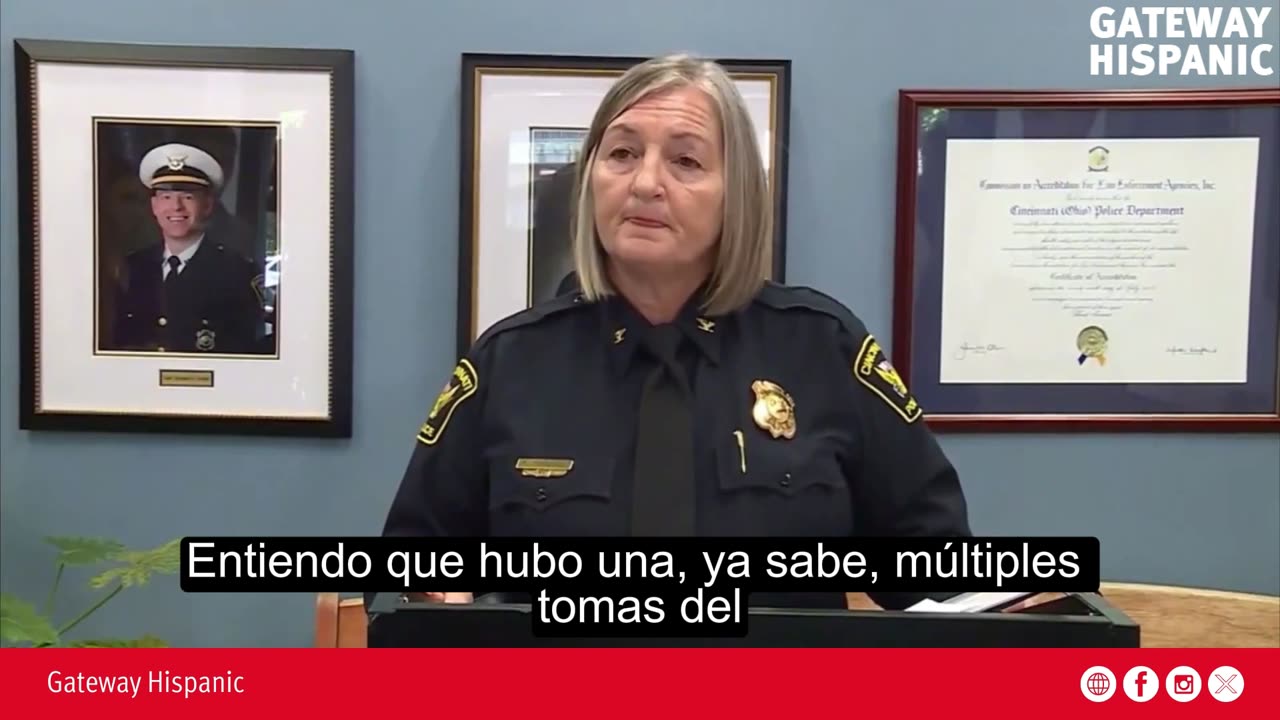Premium Only Content

Social Media and Misinformation in Police Investigations?
Recently, there has been significant controversy surrounding statements made by Cincinnati Police Chief Terri Theetge to the media, following the release of a viral video showing a brutal group beating in the city’s downtown area. Theetge strongly criticized the media and social networks, claiming that the video “lacked context” and presented only one side of the story. According to her, this partial portrayal made police work more difficult and could lead the public to form rushed judgments.
However, Theetge did not specify what information was allegedly missing from the video, which led to criticism from journalists, citizens, and public figures. Among the most prominent voices was Elon Musk, who called on the chief to clarify exactly what the “missing context” was—or else resign. Conservative commentator Greg Gutfeld also criticized her on his show for attempting to deflect attention and failing to take proper responsibility for the situation.
Adding to the controversy was the fact that, a few months earlier, four high-ranking white officers from the Cincinnati Police Department filed a lawsuit against the city and Theetge, alleging workplace discrimination. They claimed that the chief consistently favored women and minorities in assignments and promotions—raising doubts for many about the impartiality of her leadership.
Taken together, Theetge’s statements were seen not only as evasive at a time when clarity and resolve were expected in response to violence, but also as reigniting internal tensions within the department and raising broader questions about her leadership. The controversy reflects a growing distrust toward local authorities when there are perceived attempts to control the media narrative without offering evidence or transparency.
-
 2:59
2:59
Gateway Hispanic
2 days agoMegyn Kelly & Candace Owence : Someone paid a witch to put a curse on Charlie Kirk
118 -
 9:36:11
9:36:11
GoA_Malgus
9 hours ago $0.13 earnedGoA Malgus - The Legend Has Returned!!! - Live domination on Black Ops 6
6.67K -
 48:15
48:15
SouthernbelleReacts
1 day ago $8.60 earnedWeapons (2025) REACTION | Josh Brolin, Julia Garner, Alden Ehrenreich | Horror-Mystery Thriller
36K21 -
 39:36
39:36
mizery
4 days ago $0.79 earnedI Mastered Fortnite in 30 Days
17.5K6 -
 25:50
25:50
ChopstickTravel
18 days ago $3.69 earned24 Hours With Sri Lanka’s Vedda People!! (Barehand Honey Harvest)
32.1K7 -
 8:13
8:13
Danny Rayes
1 day ago $2.61 earnedMost Hated Teacher on Tiktok
20K18 -
 15:31
15:31
Chris Harden
9 days ago $4.00 earnedWhat Happened to Kewanee, Illinois?
21.1K11 -
 10:13
10:13
JohnXSantos
1 day ago $0.72 earnedThis AI Tool Makes Product Manufacturing 10X Smarter (FOR FREE)
14.3K3 -
 16:28
16:28
Artur Stone Garage
12 days ago $1.81 earned$1000 AUDI A4 — WILL IT START After 10 Years?
17.9K1 -
 26:57
26:57
Advanced Level Diagnostics
18 days ago $0.84 earned2021 Ram Promaster - No Crank! Key Stuck In Ignition! Diag & Fix!
13K1